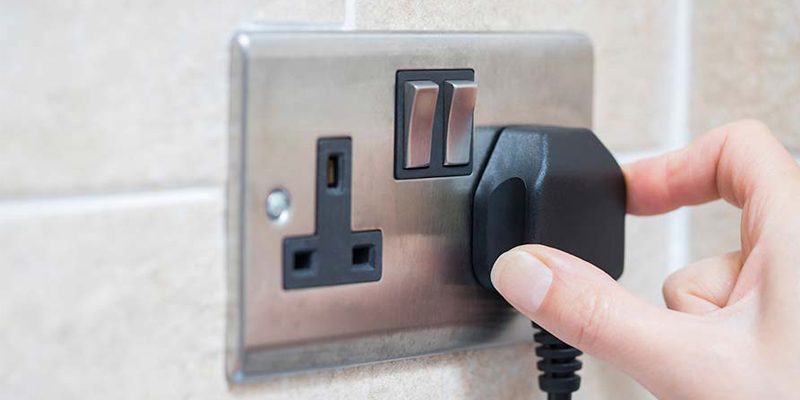Electric shocks occur when a person comes into contact with an electrical energy source, leading to the flow of electric current through their body. This can cause various injuries, ranging from minor burns and muscle contractions to severe internal organ damage or cardiac arrest. To prevent electric shocks and promote electrical safety, consider the following measures:
Inspect Electrical Cords and Outlets
Regularly check electrical cords for any signs of damage, such as frayed wires or exposed conductors. Ensure that outlets are not loose or damaged. If you notice any issues, promptly repair or replace them.
Keep Water Away from Electrical Devices
Water and electricity do not mix. Avoid using electrical devices near water sources, and keep them dry. Unplug appliances before cleaning them, and use ground fault circuit interrupters (GFCIs) in areas prone to moisture, like bathrooms and kitchens.
Use Grounded Outlets and Surge Protectors
Ensure that your electrical devices are plugged into properly grounded outlets. Use surge protectors to safeguard sensitive equipment from power surges and prevent electrical damage.
Handle Electrical Devices with Dry Hands
Always dry your hands before using or handling electrical devices. Wet hands increase the risk of electric shock.
Use Tamper-Resistant Outlets
Install tamper-resistant outlets, especially in homes with young children. These outlets have built-in safety features that prevent objects from being inserted into the openings.
Keep Electrical Devices Away from Children
Keep electrical devices and cords out of the reach of children. Cover outlets with childproof covers to prevent accidental contact.
Avoid Overloading Outlets and Circuits
Do not overload outlets or circuits by plugging in too many devices simultaneously. Distribute electrical loads evenly across different outlets and circuits.
Unplug Appliances and Devices When Not in Use
When appliances and devices are not in use, unplug them from the outlet. This not only reduces the risk of electric shock but also conserves energy.
Hire a Qualified Electrician
For electrical installations, repairs, or modifications, hire a qualified electrician. They have the expertise to ensure proper wiring, grounding, and adherence to safety codes.
Educate Yourself and Family Members
Teach your family members, especially children, about electrical safety. Discuss the risks of electrical shocks, proper use of electrical devices, and what to do in case of an emergency.
Use Electrical Safety Devices
Consider installing ground fault circuit interrupters (GFCIs) in areas where water and electricity are present. These devices quickly shut off power if a ground fault is detected, reducing the risk of electric shock.
Be Cautious with Power Tools
When using power tools, follow safety guidelines, wear appropriate protective gear, and ensure that cords are in good condition.
Never Touch Downed Power Lines
If you encounter a downed power line, maintain a safe distance and immediately report it to the local authorities. Do not touch the line or anything in contact with it.



